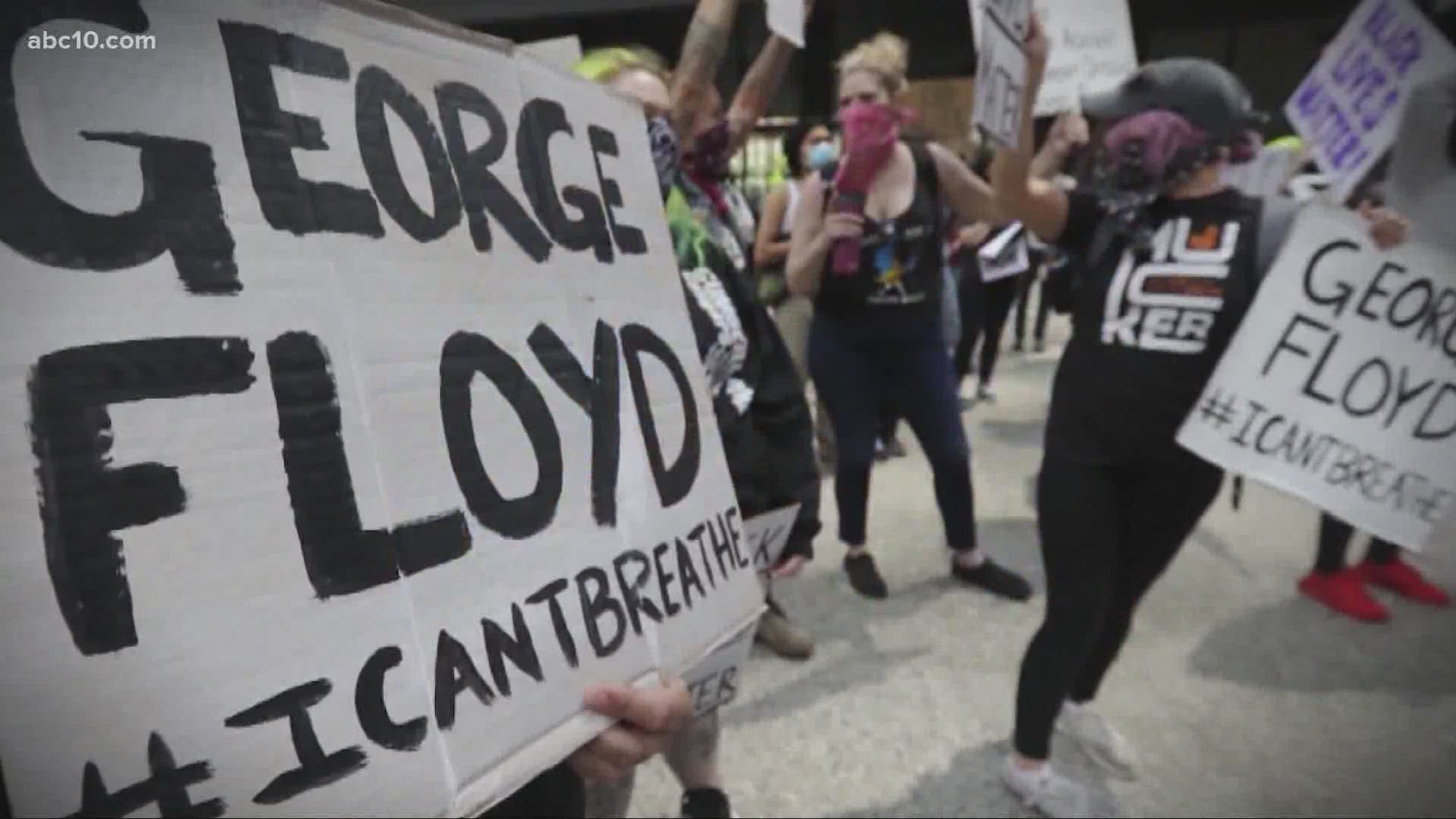SACRAMENTO, Calif. — After the death of George Floyd in Minnesota, many generations, both young and old, have taken to the streets in solidarity and to seek justice for his death.
For some Sacramento residents, it's a movement fueled by their frustrations, fear, and even some fatigue.
“We’re tired,” says Leia Schenk, a Sacramento resident. “We’re fed up. We feel really defeated in so many ways.”
ABC10 first interviewed Schenk during a protest for Stephon Clark, an African-American man killed by Sacramento police in 2018.
She says, this time, she’s seeing a younger generation in the protests.
“The ages range anywhere from 16 to maybe 24,” Schenk said. “Very different dynamic. The anger is different. The frustration is different. Obviously, the destruction is different.”
Some of the younger generations protesting say their passion comes from their frustrations and fear.
Javon Bowie, 19, says there can even be lingering uncertainty in a routine traffic stop.
“It’s scary honestly,” says Bowie, 19. “You never know what could happen. It could go from a routine traffic stop to you on the ground outside of your car [and] not knowing what’s going on."
For others, the passion is about change.
“We’re tired, and we want to see change. And I’m just trying to get out there and get everybody on the same movement,” says Keishay Swygert, 19.
70-year-old Dale McKinney remembers the civil rights movement. He says the protests now have become more spontaneous, which are similar to when he started protesting as a teenager.
“When I got to be an older teenager, we were more spontaneous especially after Martin Luther King got killed in 68. Then it became obvious with no matter how much non-violence you practice, your life was still at risk,” McKinney said.
Schenk has also noticed the change. Her back windshield was smashed during Sunday night’s protest.
“Yes, I was out there, and there was no way for these young men and women to know whose car is who,” Schenk said. “Everything is up for grabs right now, and that comes down to lack of organization. We need leaders out there. We need organization.”
However, she says that she understands the level of frustration people are feeling.
“You can sit there and talk about the roads being blocked or about the destruction,” Schenk said. “We can talk about the crowds and about everything that doesn’t matter. The bottom line is a man’s life was taken before our eyes. Before all of us. The entire public. There is no substitute for human life.”
FOR NEWS IN YOUR COMMUNITY, DOWNLOAD OUR APP:
►Stay In the Know! Sign up now for the Daily Blend Newsletter



